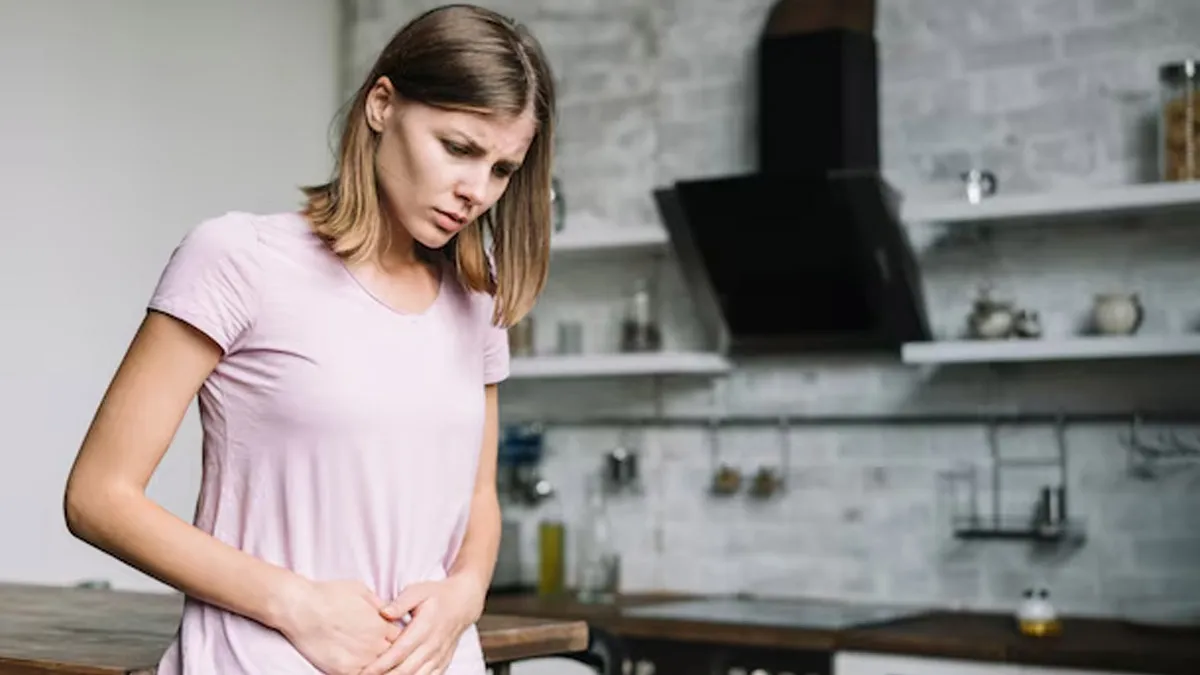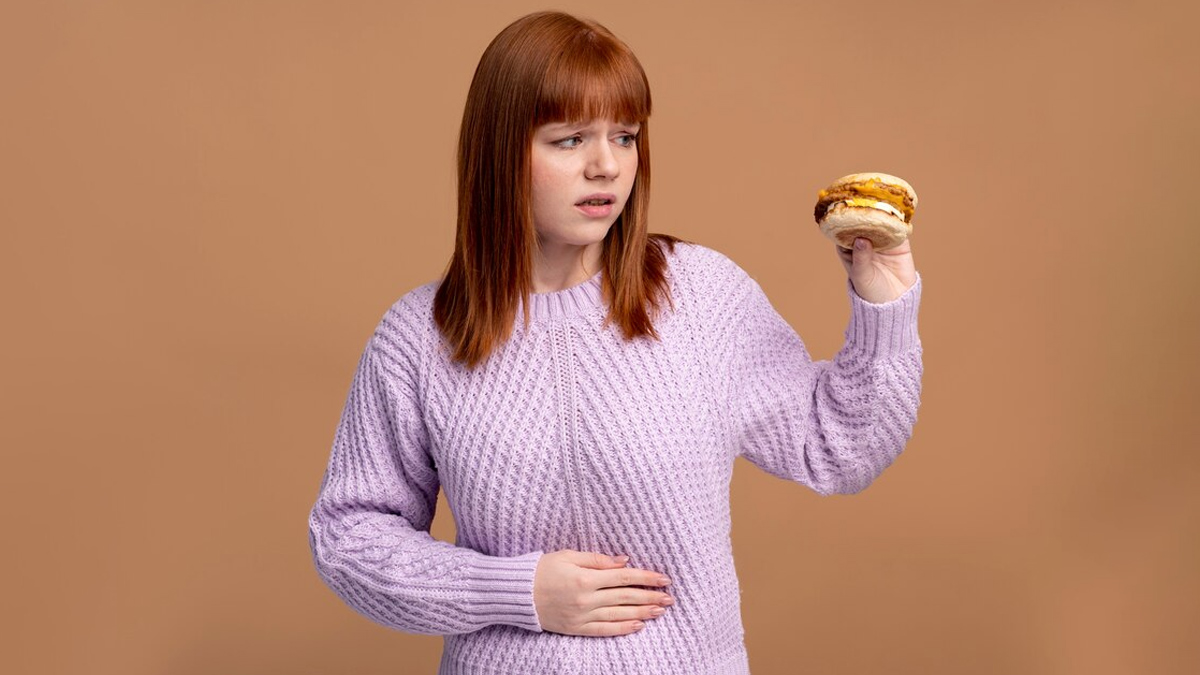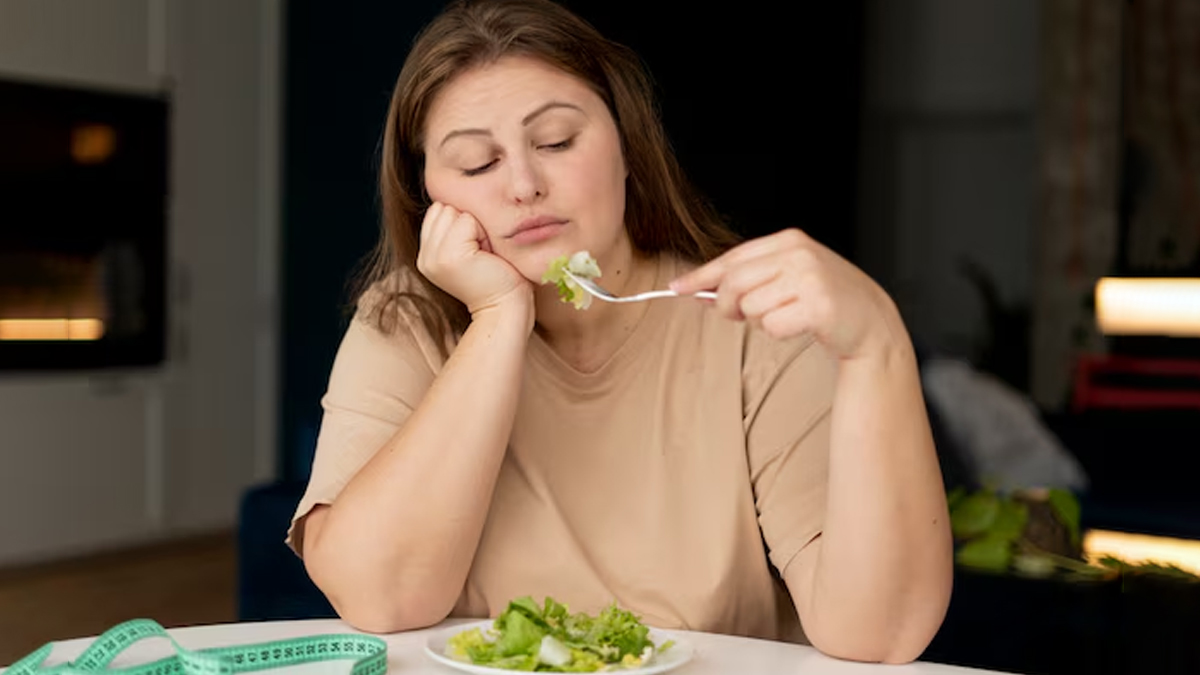
Bloating is a common problem that reportedly affects 10–25% of healthy people occasionally and up to 10% regularly. It's more common in women than men, with up to 75% experiencing it during their period. While factors such as hormonal fluctuations and medical conditions like Irritable Bowel Syndrome (IBS) and Gastroesophageal Reflux Disease (GERD) can lead to bloating, dietary factors and lifestyle habits also play a contributing role. Bloating after eating is particularly common and can cause a lot of distress. Although it mostly resolves on its own, frequent occurrences can negatively impact quality of life.
Table of Content:-
It is therefore crucial to follow certain strategies that can help prevent bloating after eating. These are easy, practical habits that can also help improve overall health and wellness.
Also Read: Bloating Is Common In People With Ulcerative Colitis: Expert Explains Its Causes And Management Tips
Eat Slowly, Chew Thoroughly

Eating isn’t just about gulping down food to feel full. It is about relishing the food you eat by chewing it thoroughly and taking in all the flavours slowly. An additional benefit of doing so is that it reduces the amount of air you swallow while eating, hence minimising the risk of bloating and gas. A Harvard Health article recommends chewing your food 30 times per bite and making your meal last at least 20 minutes.
Eating your food slowly and taking your time to chew food also aids digestion and regulates portion sizes, which in turn supports weight loss goals.
Avoid Foods That Cause Gas
Bloating usually occurs when excessive gas builds up in your stomach and gastrointestinal tract. While there are several causes for it, certain foods can be possible triggers. These include:
- Beans and lentils
- Cruciferous vegetables
- Dairy
- Certain fruits like apples, pears, peaches, and apricots
- Onion and garlic
- Artificial sweeteners
- Carbonated drinks
- Processed and packaged foods
- Fatty fast foods
A 2015 study published in Advances in Nutrition suggests that too much fibre can lead to the excessive buildup of gas and cause bloating. In fact, researchers involved in the study recommended reducing fibre intake to no more than 10 grams per day.
Stay Hydrated

Water is the answer to most of your health problems, including bloating. Drinking plenty of water not only reduces the risk of dehydration but also aids in digestion and prevents constipation, which is a common cause of bloating.
The National Academies of Sciences, Engineering, and Medicine recommend that men drink about 3.7 litres (16 cups) of fluids a day and women drink about 2.7 litres (11 cups).
Also Read: Do You Have Regular Gas Or Something More Serious? How To Tell The Difference
Avoid Overeating
Most health experts advise against overeating. Overeating is when you eat too much food in one go, i.e., when you eat past the point of satisfaction and reach a point of discomfort. It is also when you eat large amounts of food too fast, even when you're not that hungry. Doing so can cause the stomach to expand beyond its normal size, which can push against other organs, making you feel bloated and your abdomen distended. Other signs of overeating also include feeling tired, sluggish, or drowsy.
Walk After Meals

Light movement, such as a short walk, can aid digestion and reduce bloating. According to a 2023 review published in the Journal of Rehabilitation Medicine, exercise in the form of walking, running, biking, swimming, or doing yoga might help reduce symptoms of IBS, including bloating.
A 2021 study published in Gastroenterology and Hepatology from Bed to Bench also suggests that taking just a 10-15-minute walk after meals may also help reduce bloating.
Conclusion
Bloating is a common digestive problem that occurs in people of all ages, with some more prone to it than others. While it is usually harmless, persistent bloating can be concerning and may require immediate attention. If you are someone who experiences bloating after every meal, you might want to understand the underlying causes and possible triggers, including your food choices. If the condition is frequent, it is best to consult a doctor.
Also watch this video
How we keep this article up to date:
We work with experts and keep a close eye on the latest in health and wellness. Whenever there is a new research or helpful information, we update our articles with accurate and useful advice.
Current Version